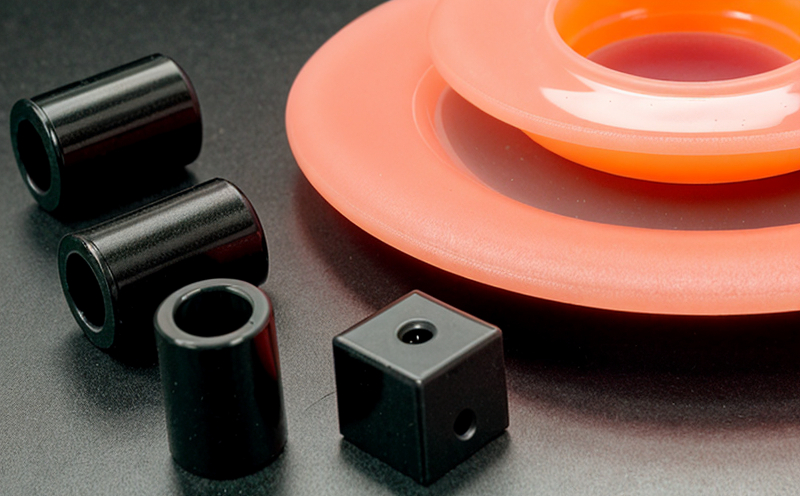UNE EN 14931 Safety Testing of Plastic Water Slides
The European Standard UNE EN 14931 provides a comprehensive framework for the safety testing of plastic water slides. This standard is designed to ensure that all materials and structures used in water slides meet stringent safety requirements, thereby protecting users from potential hazards.
Water slides are increasingly popular entertainment options at public pools and leisure facilities worldwide. However, the dynamic environment and continuous use can lead to wear and tear on these structures. Ensuring the integrity of the plastic components is critical for maintaining user safety and compliance with international standards.
The standard covers various aspects including mechanical stability, durability, material compatibility, and impact resistance. It also addresses concerns related to chemical emissions, flammability, and surface characteristics that could affect users' health or comfort.
Compliance with UNE EN 14931 is crucial for manufacturers aiming to sell their products in European markets. This ensures not only legal compliance but also enhances the reputation of the brand by demonstrating a commitment to safety and quality.
To achieve this, laboratories must adhere strictly to the specified procedures outlined in the standard. Specimens are typically taken from actual water slides or fabricated under controlled conditions to simulate real-world use scenarios. Testing involves rigorous mechanical stress tests, chemical analysis, and visual inspections.
For effective testing, specialized equipment such as tensile testers, impact testers, and flammability testers are used. The results of these tests provide critical data on the structural integrity and material properties, which are then compared against the parameters set forth in UNE EN 14931.
The comprehensive nature of this testing ensures that all potential risks associated with water slides are identified and mitigated before they reach users. This not only enhances safety but also contributes to a positive user experience by reducing incidents such as injuries or discomfort.
Manufacturers who adhere to UNE EN 14931 can expect increased trust from customers, improved market access, and reduced liability risks. By adhering to this standard, companies demonstrate their commitment to excellence in product design and production.
Scope and Methodology
The scope of UNE EN 14931 encompasses the safety aspects of plastic water slides used for public leisure activities. This includes ensuring that all materials are safe, durable, and resistant to environmental factors such as sunlight and moisture.
- Materials: Testing focuses on polymeric components commonly found in water slides, including PVC, PE, and PP.
- Stress Tests: Specimens undergo mechanical stress tests to evaluate their strength and resilience under various conditions.
- Chemical Emissions: Analysis of chemical emissions from the materials used is conducted to ensure they do not release harmful substances into the environment or affect users negatively.
- Flammability Tests: Evaluates how easily the material ignites and burns, ensuring it meets safety criteria for public use.
The methodology involves detailed inspection of materials, specimens preparation, and application of standardized tests. Compliance with these procedures guarantees that water slides meet the highest safety standards set by UNE EN 14931.
Why Choose This Test
Selecting the appropriate testing procedure for plastic water slides is essential to ensure user safety and compliance with international regulations. UNE EN 14931 provides a robust framework that addresses multiple critical aspects of the product's design, materials, and performance.
By choosing this test, manufacturers can:
- Ensure Compliance: Stay compliant with European safety standards.
- Promote Safety: Minimize risks associated with material failure or chemical emissions.
- Increase Reputation: Enhance brand reputation through adherence to high safety standards.
- Reduce Liability Risks: Lower the chances of legal disputes and recalls due to unsafe products.
- Better User Experience: Provide safer and more enjoyable water slide experiences for users.
The detailed testing procedures outlined in UNE EN 14931 offer peace of mind, ensuring that every aspect of the product is thoroughly examined. This comprehensive approach not only protects manufacturers from legal issues but also fosters trust among consumers, leading to increased market confidence and sales.
Quality and Reliability Assurance
To uphold high standards of quality and reliability in polymer & plastics testing for water slides, laboratories must adhere strictly to the procedures defined by UNE EN 14931. This involves meticulous specimen preparation, rigorous application of tests, and thorough documentation of results.
- Specimen Preparation: Samples are taken under controlled conditions to simulate real-world use scenarios.
- Mechanical Stress Testing: Specimens undergo various forms of mechanical stress to evaluate their structural integrity.
- Chemical Analysis: Detailed chemical analysis is conducted to ensure material compatibility and safety.
- Flammability Tests: Rigorous flammability tests are performed to assess the likelihood of ignition and burning.
The laboratories responsible for this testing must have state-of-the-art equipment and skilled personnel trained in the application of these procedures. Continuous monitoring and updating of methodologies ensure that UNE EN 14931 remains a leading standard for safety testing in polymer & plastics applications.
By adhering to these stringent requirements, laboratories can provide reliable and accurate test results, ensuring compliance with international standards and enhancing user confidence in the products they produce.





